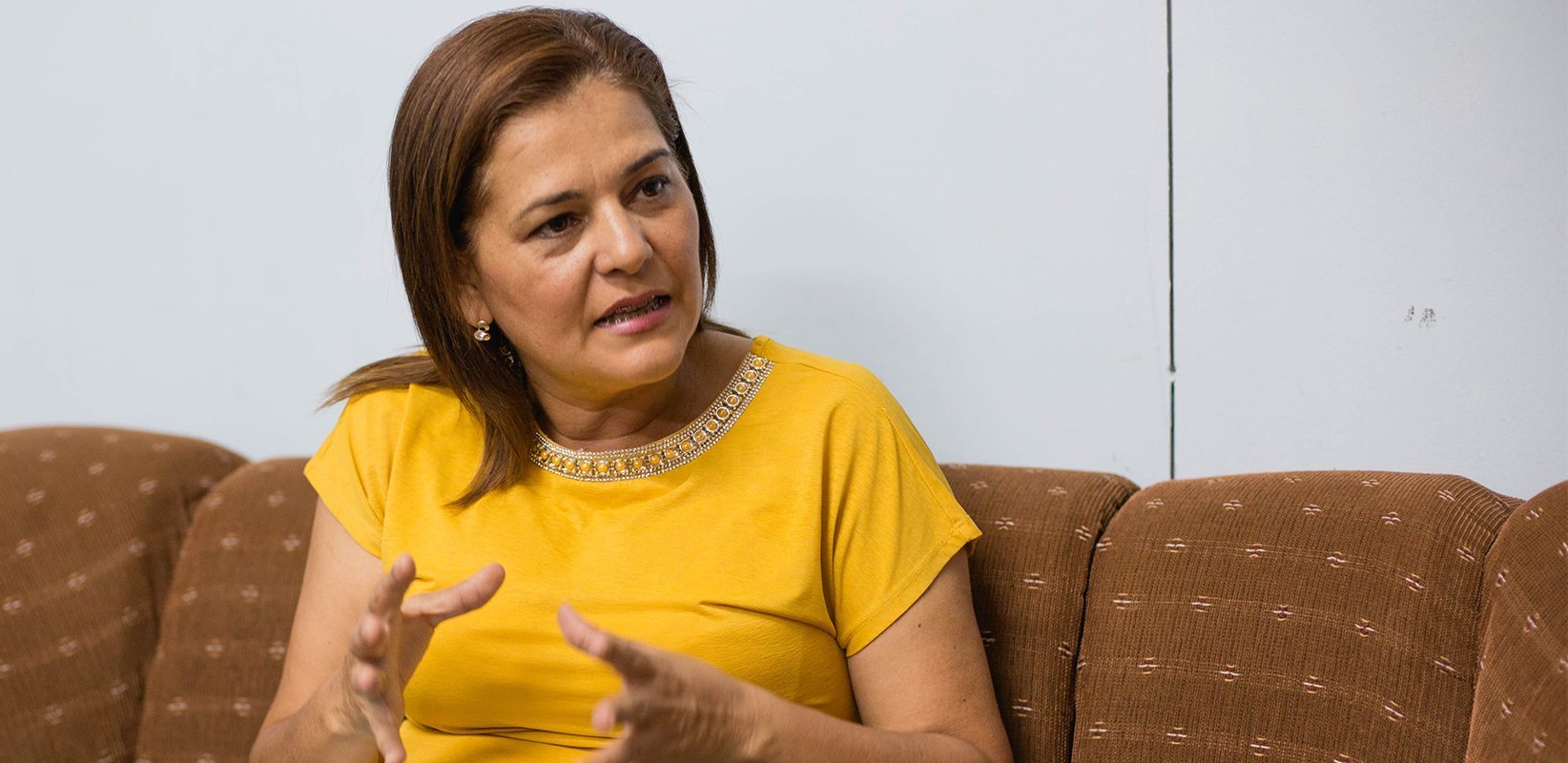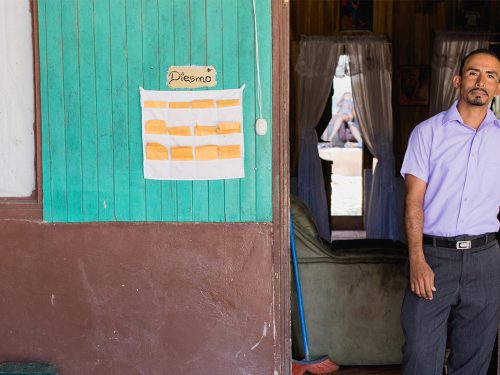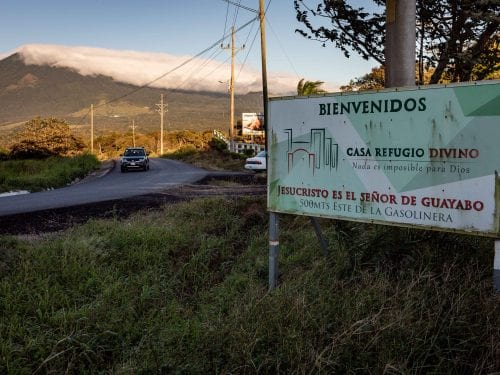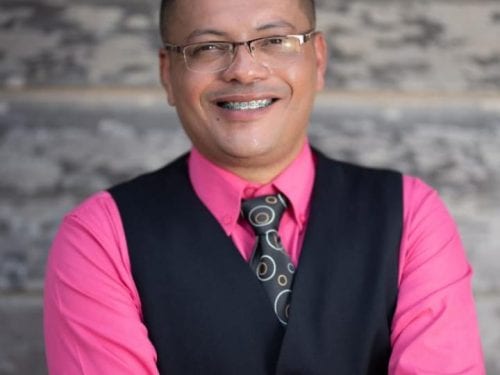

On the armchair that congresswoman elect Mileidy Alvarado is sitting in lays an agenda full of notes, Fabricio Alvarado’s government plan and a notebook with a foam cover decorated with her political party’s flag. Starting the interview with The Voice of Guanacaste, she takes out an index card and looks at it in order to give some of her responses.
She says it’s clear to her that her priority projects are the Rio Piedras reservoir, the expansion of the pediatrics and gynecology departments of the Liberia Hospital and cooperatives for fishermen. But in the vast majority of responses, Mileidy flips through the government plan while she says “everything is going to be in accordance with the party line.”
This is an extract of the interview:
— Have you been scared because of your lack of experience in politics?
“In life you have thoughts, but you don’t know if you have the character to face it until you live it. At the time of my candidacy I thought about the possibility of winning, of course I did, I worked for it and I pushed myself for it.”
— What have you done to face your arrival in the first power of the Republic?
“Study, prepare myself and approach people that have knowledge. I’m immersing myself in everything that corresponds to Guanacaste. What’s important is to be humble, to want to learn and to be willing to collaborate.”
— Here in Cañas, you are a pastor where different churches have a presence. Was that a factor in your election?
“I don’t think so because Catholics have supported us too. The political party isn’t seen as religion. Who knows the whole town better than a barber? If the people elected me, I said ‘I’m here to serve.’ May it be what God wants because it could last for more than four years. May it be what God wants.”
— In the productive sector, what concrete actions will you implement for the production of basic grains and food security in Guanacaste?
“What actions? The party line will guide us and will see what the necessities are in each canton. It’s not the same in Cañas as in Nicoya.”
— You say in agreement with the party, but you are the one who knows the Guanacaste reality, right?
“But remember that I have a block of 14 congressmen. We are going to present a bill where the party is going to support me and we are going to present it there. I’m not alone.”
— But the other 13 congressmen don’t know the Guanacaste reality.
“That’s what I’m here for. To get to know, present and have their support. Because I don’t work alone, I work with 13 others.”
— Okay, but then what is your idea for taking the issue of food security to Congress?
“According to the necessity of each canton.”
— And what have you seen?
“Well, the rice growers, the sugar refineries, the one who has a small farm, development through banking. They don’t have the money and that’s the need we are going to try and cover.”
— In your party’s government plan, it mentions developing a first world train and pushing for telecommuting in order to decongest the roads, but here in Guanacaste we have other realities. What bills are you going to support in Congress in terms of infrastructure for Guanacaste?
“We are going to work in accordance with Fabricio’s line, in accordance with what the government is going to develop.”
— And what have you seen in the trips you have made?
A lot, I have seen a lot. The roads are really damaged. But I think that we are going to present good bills.
— Do you agree with pushing for a model of private concessions across the country in order to ease delays in infrastructure?
“It will all go according to the party line.”
— And public-private partnerships for developing roads?
“I see it as a very good opportunity. We need to unite. We must acquire strength, jobs. All in accordance with the party line.”
— In a previous interview, you didn’t tell us how you planned to push for the repair of Route 160. Now that you have secured your post in Congress have you already analyzed how you think you can incentivize the repair of Route 160?
“No, no, no. Not yet.
— For you, what is the best way to turn wealth into social development?
“Through bills. We will see as they move along. We could extend our reach through associations. Who better than them that know what the needs are? Being able to present the bills that are stalled.
— I’m not clear on your response. How would you turn Guanacaste wealth into social development?
“Working, giving them sources, helping people. With bills! It’s through legislative bills that we will be able to work on the different areas of poverty.”
— Do you know anything about the sales tax and the desire to turn it into a value added tax?
“Yes.”
—Do you agree with this transformation?
“We go along with the party line and Fabricio’s line and the government plan.”
—And what is Fabricio’s position?
“What I understand is uniting. It’s joining, right, joining in this sense the sales tax with the digital invoicing that is being done right now. In the sense that we don’t have a lot of spending and to summarize even more the idea that the country can move forward.”
— What is your position about the Public Education Ministry’s emotional and sexual guides?
“We don’t agree. We have to make corrections. Sexuality has to be taught at a young age, in order to identify ourselves: woman, man, what the organs are.”
— What parts do you not agree with?
“Love isn’t expressed in this way, but it goes more toward diversity, toward the thought that a child has about his physical perspective and that’s where we are going to detour. There are a lot of things but I’d like to stop there.”
— Do you support the accord to grand licenses for dragnet fishing in Costa Rica?
“I think dragnet fishing still has six years of licenses left, according to what I have read. There are a lot of situations there. We are going to handle it in accordance with the party.”
— What is you’re the balance in terms of the environment, because it is said that there are species that will be affected?
“Yes, of course, many. We are going to develop it, as I immerse myself more, like what is being done in the coastal zones.”
— Do you need to study it more?
“I need to gain a deeper understanding, of course. I only know a little bit about it.”
— Do you support the bill to extract geothermal energy from national parks?
“I haven’t entered Congress yet! (she laughs). I enter in May! We are going to study it and see how it goes. We are going to get advisors and seek out professionals in this area.”
— But do you think geothermal energy production is beneficial?
“We are going to study it a little more.”







Comments